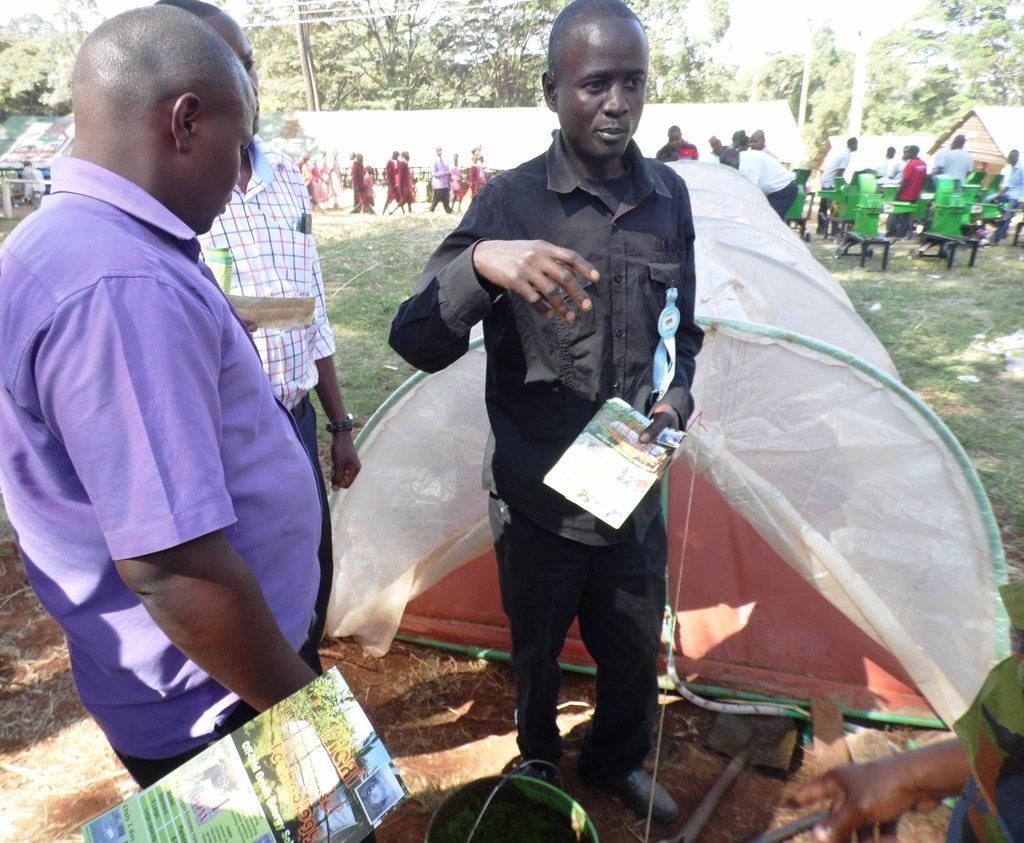Urban residents, who can access at least 20kg garbage per day, can save more than Sh2,000per month spent on cooking gas and electricity by installing the new greenhouse digester that breaks down any organic waste besides cow dung to produce biogas.
The digester requires only 20kg or organic waste per day to release about two cubic meters of biogas. For every 20kg of waste, 20 litres of water are required. In the case of using weeds, they have to be chopped into pieces of less than three centimeters.
Currently, farmers and people living in rural areas rely on biogas from cow-dung while those without livestock use commercial gas and power from the national grid for heating, lighting, and other power applications.
On average, refilling a six kilo gas cylinder costs Sh950 while electricity tokens cost Sh10 per unit with households consuming about 20 to 50 units in a month.
Damackline Kemunto, a Nairobi resident for instance who has a family of five spends about Sh950 on cooking gas, and Sh500 to Sh600 on charcoal per month. The power bill ranges from Sh350 to Sh500 per month. Such an installation can save her close to Sh2,000 per month.
Related content
University launches machine that produces biogas from water hyacinth
Plastic biogas digesters fit changing livestock size
Biogas heater reduces chicks brooding energy cost to zero
The bio digester from Biogas International Limited, also called the greenhouse, is not selective. It can be fed with any organic matter, including weeds, kitchen waste, and market garbage, among others to produce biogas.
Flexi Biogas Technology’s Richard Ondiek explains how the greenhouse digester works to farmers during the Nairobi International Agricultural Society of Kenya trade fair at the Jamhuri Show Grounds. The digester breaks any organic matter into gas.
“It does not matter the type of organic matter you feed into the digester. Anything organic can be broken down to release cooking gas or electricity,” said Richard Ondiek, of Flexi Biogas Technology.
Although the digester can still run on animal excrement including droppings from poultry, rabbits, pigs, goats, and so on, the first one tonnne after installation must be cow-dung.
Cow-dung is rich in digestion microbes, which establish a colony in the envelope-like tube for continuous recycling of the matter into energy.
The envelope is laid in a shallow basin-like tunnel. A greenhouse like polythene is wrapped on top, but it is raised to about one meter to allow for expansion during decomposition.
After digestion, the slurry does not smell at all. It can be disposed safely after getting out through the rear end.
As new waste is fed, the older one keeps getting out at the end of the about 10 feet long structure.
The envelope can last for 10 years and can be uninstalled and be installed in another place, if the owner moves.
Flexi Biogas Technology also customizes the gas to meet various uses including chicks brooding, heating up showers, cooking, cooling machines like fridges, incubators, among others.
It costs Sh61,000 to install. Ondiek can be reached on +254724971553

















Comments powered by CComment